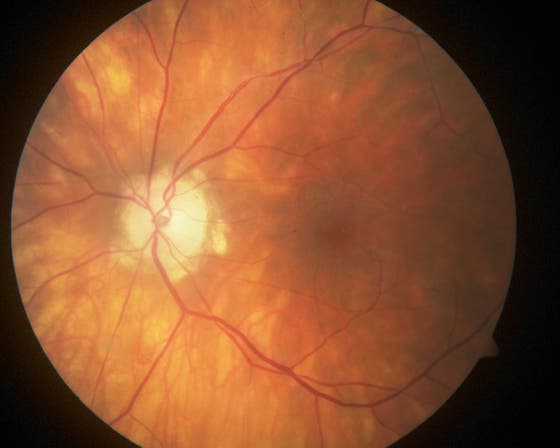Nov 21: Function and regulation of ERAP2 in birdshot uveitis

In this PhD research, Wouter Venema (UMC Utrecht) and colleagues worked on understanding the role of endoplasmic reticulum aminopeptidase 2 (ERAP2) in the context of autoimmune uveitis, a severe inflammation of the eye. On November 21, Wouter defended his PhD thesis at Utrecht University.
Endoplasmic reticulum aminopeptidase 2 (ERAP2) is an enzyme that trims peptides before these peptides are loaded on Human Leukocyte Antigen (HLA) Class I molecules. ERAP2 is associated with many autoimmune diseases of which birdshot uveitis (BU) is one of them. This rare form of uveitis is the only autoimmune disease where all patients carry at least one HLA-A*29 allele. Therefore BU is an interesting disease to use as a model to study autoimmunity in MHC-I mediated diseases (e.g. spondyloarthritis and psoriasis) and to study antigen processing by ERAP2 and antigen presentation via HLA-A*29.
Role of ERAP2
In order to study the role of ERAP2 in antigen presentation, Wouter Venema (Department of Ophthalmology and Center for Translational Immunology, UMC Utrecht) and colleagues developed their own patient-derived cell lines (EBV-LCLs) to identify thousands of HLA-A*29 bound peptides.

Using CRISPR-Cas9 to knockout ERAP2 in these LCLs, they were able to distinguish a shift in peptide abundance depending on the presence of ERAP2. As a result, they were able to determine a preferable peptide motif which ERAP2 uses to trim peptides. In addition, Venema and colleagues found that ERAP2 is involved in facilitating the presense of HLA-A*29 exclusive peptides. Finally, they looked into a long debated protein called S-antigen to validate if this protein can cause an inflammatory response via HLA-A*29. However, no CD8+ T cell response against S-antigen derived peptides was detected in patient’s blood and ocular fluid.
Apart from the function of ERAP2, Venema also assessed the regulation of the ERAP2 gene. Therefore, he studied the function of single nucleotide polymorphisms (SNPs) related to ERAP2 expression and found that some SNPs are involved in creating a chromatin loop structure that might influence the expression of ERAP2.
Wouter Venema emphasized that his research had resulted in significant advances in validating and translating genetic associations (which are often found, but not explained) towards a better understanding of how the ERAP2 association with (ocular) autoimmunity influences inflammation.
Birdshot uveitis
Birdshot uveitis (BU) is an rare type of non-infectious uveitis (with a prevalence of 0.1-0.6 cases per 100.000 worldwide) and is characterized by retinal vasculitis and vascular leakage, macular edema, optic disc inflammation and retinal degeneration. Most patients experience floaters and blurred visison and some night blindness. Patients typically present distinctive shotgun pattern-like lesions, the cause of which is believed to be T cell mediated autoimmune reactions directed against antigens expressed in the retina or choroid. BU can lead to significant visual impairment and the additional side effects from immunomodulatory treatment impact the quality of life.
PhD defense

Wouter Venema (1993, Gouda) defended his PhD thesis on November 21, 2023 at Utrecht University. The title of his thesis was “Targeting ERAPs in autoimmune uveitis – The function and regulation of ERAP2 in birdshot uveitis.” Supervisors were prof. Joke de Boer MD PhD (Department of Ophthalmology, UMC Utrecht) and Jonas Kuiper PhD (Department of Ophthalmology and Center for Translational Immunology, UMC Utrecht). Co-supervisor was Annette Ossewaarde-van Norel MD PhD (Department of Ophthalmology, UMC Utrecht).
